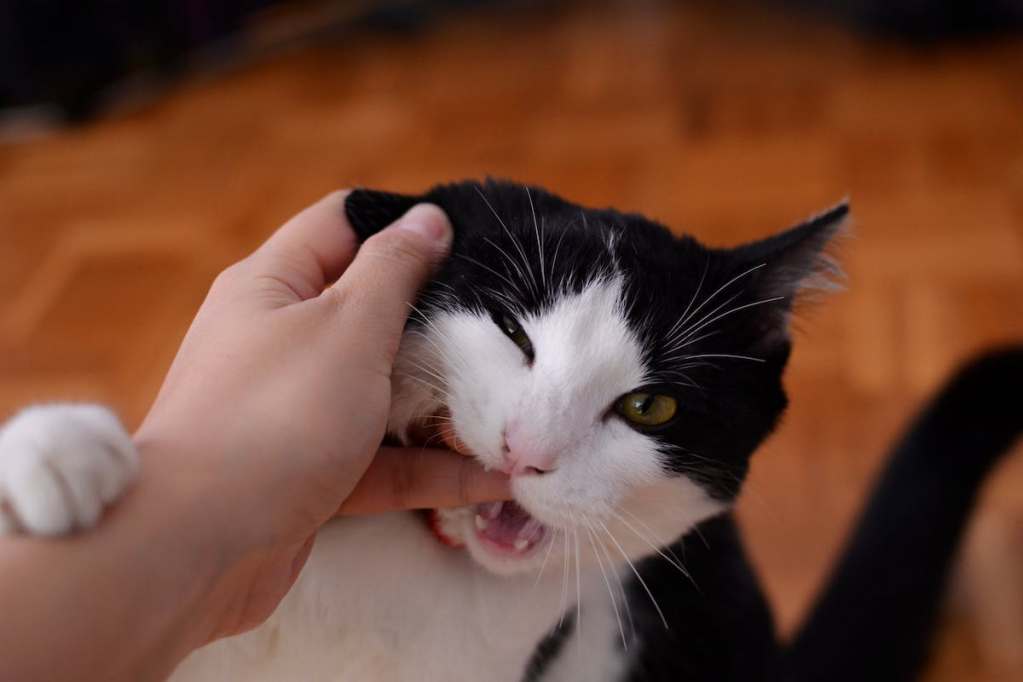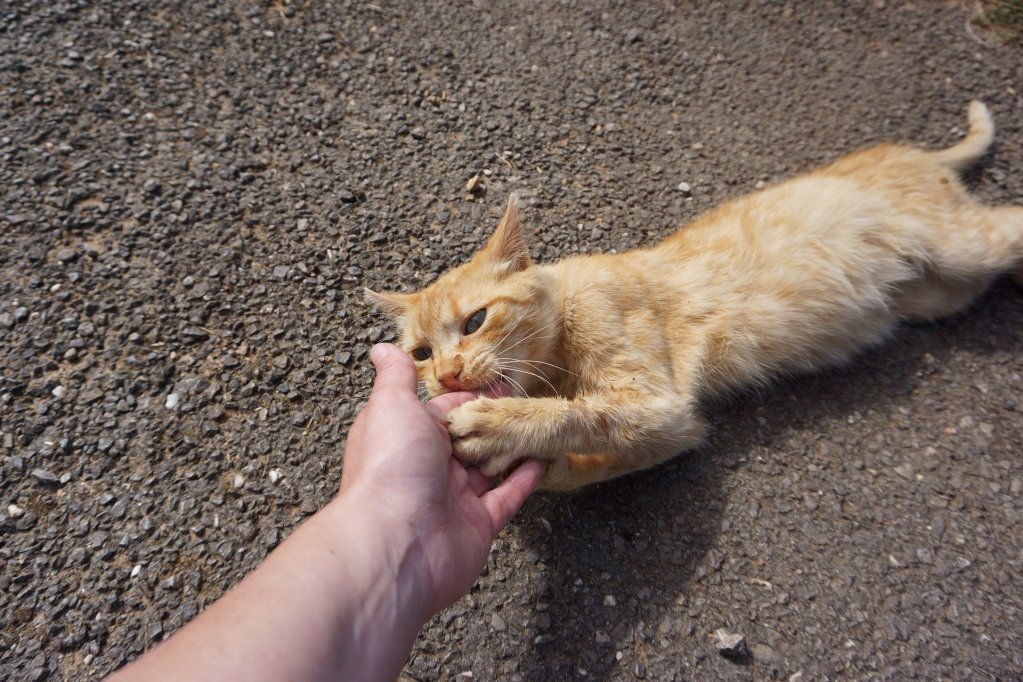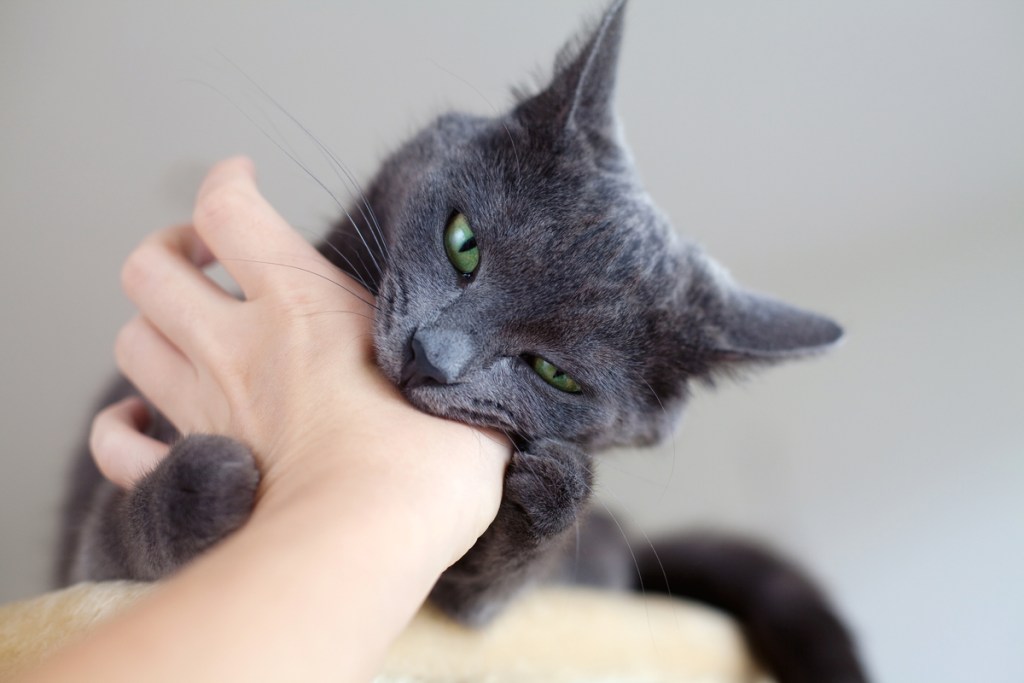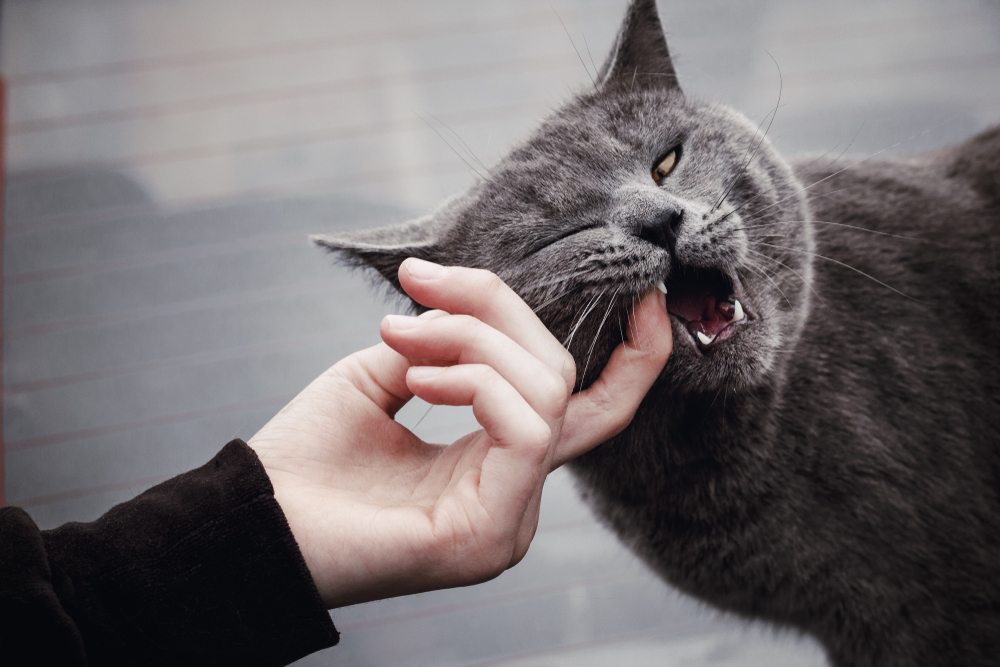
When you have a cat in your home, chances are you spend plenty of time patting him and interacting with him. These interactions are usually peaceful and enjoyable for you both. It might surprise you, then, if your cat ever bites you. A bite can be unexpected and can seem unprompted, but there are many logical reasons why your cat might bite you.
If you’re wondering, “Why did my cat bite me?” There are a few things that might be going on. It’s important never to get mad at your cat or use negative reinforcement. You need to get to the root of the problem and find a solution that prevents your cat from repeating this behavior and tends to the wound quickly.
Why did my cat bite me?

According to PetMD, cats bite for a variety of reasons. Cats are natural predators, after all. When they’re able to pounce on and bite something, they feel like they’ve killed it and feel happy as a result. No, your cat isn’t happy they’ve hurt someone, but it does satisfy their prey drive. Movements you make (like walking past your cat or reaching out to pat him) could mimic prey, and your cat might just be following his instincts.
Sometimes, cats learn to bite when they are kittens. Allowing kittens to nip at your hands might be cute and not hurt much while they’re young, but it can cause problems as they grow up. Kittens who have learned that this behavior is acceptable may continue it as adult cats, which can be painful for you.
Pain may also cause cats to bite. Your cat might be concealing his pain or discomfort so well that you’re not aware of it, but when you pick him up or touch him, you might trigger that pain. Your cat’s biting is a defense — he’s trying to stop that pain that you’ve caused.
It’s also possible that your cat is frustrated and feeling aggressive toward something else but taking it out on you. That aggression might be caused by a new pet in the household or some other source of stress.
How to stop your cat from biting

To prevent your cat from biting, PetMD recommends visiting the vet to rule out pain or other medical concerns. Next, make sure that you’re playing with your cat daily to satisfy his natural predatory instincts. If your cat tries to bite you during playtime, turn around and walk away. You’ll be establishing an important boundary and teaching your cat that if he bites you, the activity he enjoys stops.
You can also learn to read your cat’s body language to better understand if he’s overstimulated or agitated. Look for signs like pinned-back ears, hissing, a flicking tail, and dilated pupils to identify when your cat is bothered. During these times, give your cat plenty of space and wait until he’s calmer before you approach him.
What to do if your cat bites you

According to VCA Hospitals, cat bites can be dangerous because of the bacteria that cats carry in their mouths. That bacteria can cause bite wounds to become infected easily, and those infections can possibly lead to cellulitis or septicemia, also called blood poisoning.
If you’re bitten, it’s important to wash the bite under running water immediately. You can create a mild salt solution by adding one teaspoon of salt to two cups of water. If the wound is bleeding, apply pressure with a bandage or dressing.
Since cat bites are punctures, the design of the bite can push bacteria into your body. It’s important to see a doctor right away; they will probably prescribe antibiotics to help prevent infection. Your doctor may also recommend a tetanus booster or a rabies treatment.
Having your cat up-to-date on his rabies vaccination is particularly important in the case of a bite. If your cat’s vaccination status is up-to-date, then the Department of Health will likely ask you to quarantine him for 10 to 14 days. If your cat’s vaccine status is out-of-date, then that quarantine period could be longer.
What to do if your cat bites another animal

Cat bites are painful and concerning no matter who’s being bitten, but let’s be honest — the guilt becomes real when they bite someone else. It’s normal to feel sorry, but remember: you can’t directly control your cat’s actions.
If your cat bites another cat or household pet, the biggest danger won’t be the bite itself, but the infections that can follow. Cat bites don’t normally cause excessive bleeding, but it’s important to put pressure on the wound to stop the bleeding before cleaning the bite and calling your vet. Not even cats are immune to the bacteria that can be transferred from other cats’ mouths, so a veterinarian will need to perform an exam to decide whether antibiotics are needed as a precaution.
Outdoor cats may be more at risk of becoming involved in fights and, therefore, sustaining bite injuries. Try to keep your cats indoors when possible and introduce pets slowly to ensure a positive relationship.
The bottom line on cat biting

Hopefully, you won’t ever have to deal with a cat bite, but knowing the risks and the right steps to take can help prevent the issue from becoming too severe. If your cat bites you frequently, then talk to your vet about having your cat evaluated. Your vet might be able to identify a health issue that is causing your cat to bite or provide some tips to help you get your cat to stop the behavior. There’s a reason behind your cat’s biting behavior which might take time to identify, but figuring out the cause can help you to get the behavior to stop.


